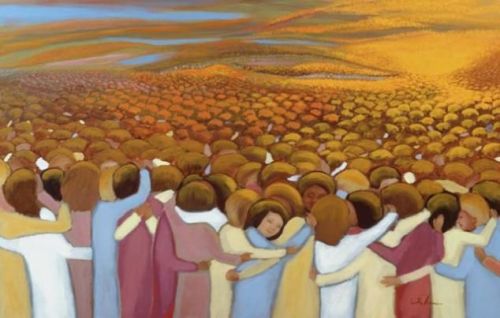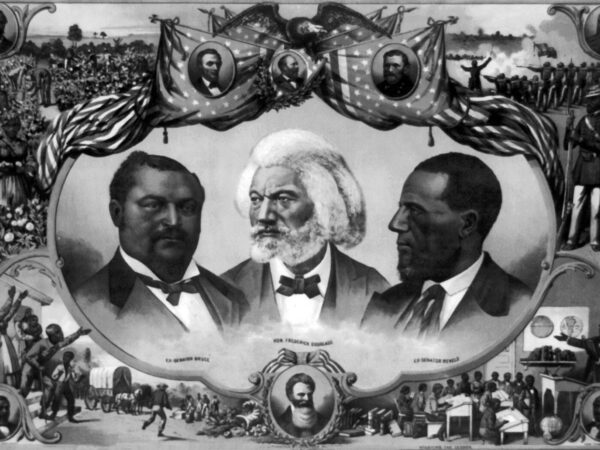
Luke’s wordplay allows us to see this story as something larger than a particular Jesus event with a particular woman in a particular synagogue on a particular Sabbath. A one-off, straightforward healing event can be described without such wordplay. Through the creativity of his storytelling, Luke makes this moment a signal event, about a Daughter of Abraham and the work of the Christ.

Who produces American history textbooks? Beyond historians’ work, this question demands a reckoning with political partisanship that creeps into the publication process of history textbooks. A comparable phenomenon can be traceable in ancient textualization of sacred memory. Acknowledging political forces in knowledge production helps renegotiate one’s perspectives on sanctioned discourses of historical memory in modern and ancient worlds.

The ecclesiological model that emerges from reading Paul and Mouffe could allow us to position the church itself as a politically and theologically diverse community within the larger society. The role of the church is not to strive towards articulating one uniform voice, both within or in public spaces, but highlight various and even rival voices.

In the midst of a complicated and troubled world it may seem impossible to make a difference, and yet, the wish of a little Israelite girl says otherwise. The spirit of the young Israelite girl and her larger cadre of enslave servants to Naaman live on today in the resourceful actions and tireless work of so many influential youth in our world, those whose passion and will for change persist.

Jezebel embraces her gods just as Elijah does. When the prophets of her gods are mocked and killed in a most disrespectful way, Jezebel is angered. In the face of death, she remains fearless. Her fearlessness combined with her reverence to her gods in a foreign land makes her an example for contemporary women.

A Pentecostal revival of justice would bear all of the hallmarks of Luke’s story. In quick order the Spirit-driven church of Acts established a community where nobody was lacking. A revival today could bring that same ecstatic joy and establish a community oriented toward justice.





